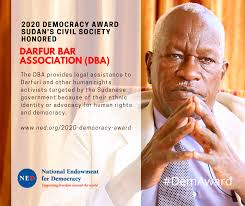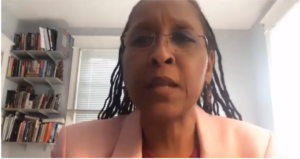Mass graves recently discovered in the Sudanese capital Khartoum could constitute new evidence of war crimes against former president Omar al-Bashir, lawyers and rights advocates told Middle East Eye. Sudan’s general prosecutor announced in mid-June that two mass graves, containing the bodies of dozens of military officers and secondary school students, had been found in Khartoum.
 Sudanese hold divergent views on the meaning of transitional justice. Many Sudanese are impatient with the lack of progress establishing a transitional justice strategy and creating transitional justice mechanism many months after the revolution that overthrew President Omar al-Bashir and ended decades of his tyrannical rule, notes David L. Phillips, Director of the Program on Peace-building and Rights at Columbia University’s Institute for the Study of Human Rights.
Sudanese hold divergent views on the meaning of transitional justice. Many Sudanese are impatient with the lack of progress establishing a transitional justice strategy and creating transitional justice mechanism many months after the revolution that overthrew President Omar al-Bashir and ended decades of his tyrannical rule, notes David L. Phillips, Director of the Program on Peace-building and Rights at Columbia University’s Institute for the Study of Human Rights.
Transitional justice has three interconnected and mutually supportive pillars, he observes:
- Accountability is critical to justice and consolidating the “new Sudan”. Successful prosecutions deliver a strong statement against impunity and demonstrate that the new government is willing and able to transition from the violent past. Prosecuting perpetrators also sends a signal that criminal acts will not be tolerated in the future. Prosecutions also deter revenge and retaliation, restoring the rule of law in a post-conflict society.
- Transitional justice should seek to strengthen national institutions of justice and security, including formal and informal dispute settlement processes, while building capacity and providing technical advice and assistance. In addition, a grass-roots, or “bottom-up” approach to transitional justice should be a part of the transitional justice agenda. Local or community-based justice and reconciliation initiatives enhance the resiliency of the affected population, while strengthening the role of civil society during the period of political transition. ….
- Truth-telling is also a critical component. This can involve a truth commission and a history commission to expose what crimes occurred. The South Africa model linked truth and reconciliation. Amnesty was afforded to perpetrators who confessed their crimes.
Sudan’s experience provides a testament to how important civil society is to a peaceful democratic transition, a National Endowment for Democracy (NED) forum heard this week.
 The U.S. government is closely monitoring and encouraging the work of the civilian-led transitional government (CLTG), said Deputy Assistant Secretary Makila James (right), paying tribute to three civil society groups being recognized with the NED’s 2020 Democracy Award.
The U.S. government is closely monitoring and encouraging the work of the civilian-led transitional government (CLTG), said Deputy Assistant Secretary Makila James (right), paying tribute to three civil society groups being recognized with the NED’s 2020 Democracy Award.
“Confronting the Truth” (above) shows how countries that have experienced massive human rights violations have created official, independent bodies known as truth commissions, the International Center on Nonviolent Conflict reports. Since 1983, truth commissions have been established in over 20 countries, in all parts of the world. “Confronting the Truth” documents the work of truth commissions in South Africa, Peru, East Timor, and Morocco.







